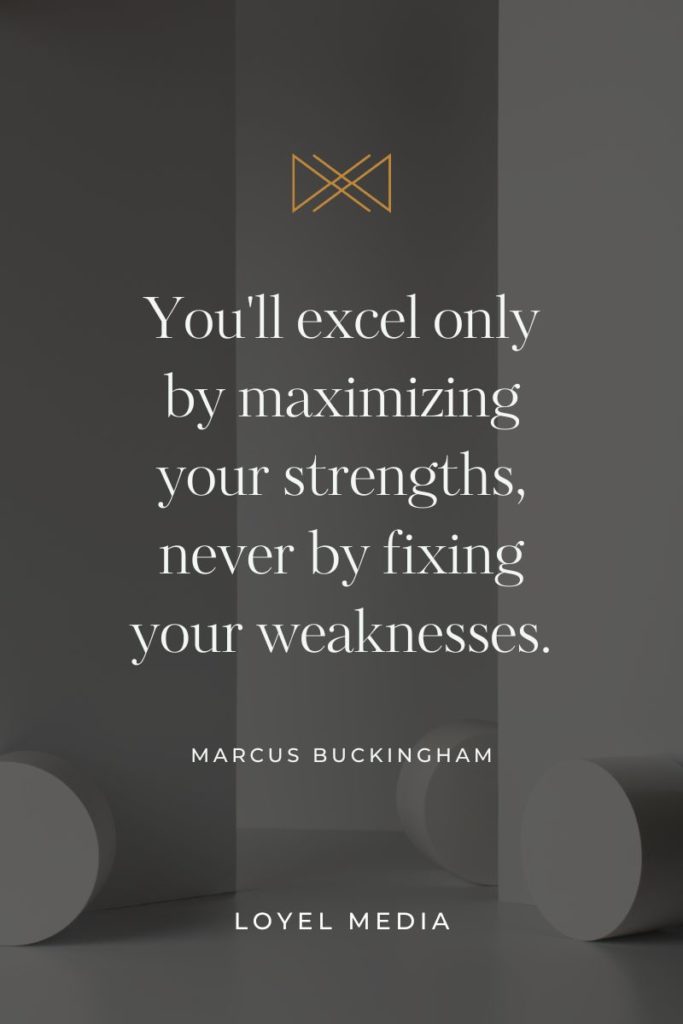You’ve got a great script to launch a stellar campaign. Hire the right voice over talent for your media project—and it can be a game changer.
Your choice of voice over talent can make or break your ad’s success.
The number one mistake to avoid: hiring a talent that’s not a good fit for your project and then pushing them to deliver outside their area of expertise. In short, working against your talent’s strengths.
Always hire the voice talent best suited to your project and play to their strengths.
Trust us. After producing thousands of media projects and booking talent for more than 20 years, what you don’t want to do is hire a voice over talent for the wrong reasons. Then, try to direct your way out of a poor choice.
Establish the ideal talent first. Then concentrate on those characteristics when you cast your project.

What to Consider When Casting Your Voice Over Talent
Choosing the right voice for the style of commercial you’re producing ups the credibility factor and, as a result, the impact of your ad.
When your talent is in the zone—where they have the most experience—they do their best work. And this elevates your project.
Where to Begin
Start with your project goals and what you hope to achieve with this campaign. Undoubtedly, these details were fleshed out well in advance when developing your ad copy.
Think about the ideal customer your ad is intended for, what you would like them to do, and how the voice talent you choose might inspire them to take action.
Your Target Audience
What demographic is your ad targeting, and what type of voice will best capture the attention of this audience? Use this as a baseline when casting your project.
Sales Approach
Which method is best suited for your campaign:
- Hard sell
- Soft sell
- Conversational
- Story driven
Style of Delivery
What tone is required to deliver your message effectively:
- Dramatic
- Humorous
- Angry
- Happy
- Reassuring
- Sarcastic
- Friendly
- Authoritative
Narrowing Your Choices of Voice Over Talent
Zero in on the type of voice(s) that can best present your message, given the approach and delivery you’ll be using.
When working on a project, we sometimes write advertising copy with specific talent in mind. We’ve worked with many professional voice actors for several years. Over time, we’ve learned the cadence of a particular talent’s voice or delivery. We can use those strengths in pre-production to make an ad more powerful.
That’s not to say that a voice talent will not have range. A professional talent absolutely will. But make sure the one you choose is best suited to your project.
Listen to voice over demos. These provide samples of the styles a talent delivers well. Look for one that comes close to what you need. If you don’t hear one, ask for an audition.
Don’t assume that because a talent is experienced or has good reviews, they will provide the best read for your project. The audition can give you the added assurance you need.

Type of Media Project & Run
What type of project will you need the talent to voice?
- Advertisement
- Product demonstration
- Web video narration
A voice over talent will generally charge by the medium and time length your media will run. For example, a broadcast TV ad to air in a medium-sized market for several months.
What platform or medium will your media air on?
- Broadcast Radio or TV
- Digital advertising
- Podcast and audio platforms
- A company website
Be prepared to provide these details when you request a quote from your talent or an agent.
Clarifying Details Before You Hire a Voice Over Talent
Reach out to two-to-three talents you consider a good fit for your project. While many are accessible directly, some are part of a stable of voices represented by a talent agency or production studio. In these cases, you’ll likely be directed to an agent, casting director, or media producer.
Find out if the talent will record your project from their own studio or a remote one.
Either way, get the specs of the studio where your talent will be voicing your project. You’ll want assurances it’s a professional setup, including the microphone, pre-amp or interface, and an acoustically-treated recording environment.
Confirm that they can patch you in for a session too. You’ll want the option to direct the session remotely if needed.
Tip: Ask whether there are any added charges if they record from an outside studio.
Make sure the files you receive will be broadcast quality. Many voice artists have their own studios and are happy to send a dry voice sample recorded from their studio. This way, you can hear the quality of their studio before you book your project.
Timelines
You’ll need to know if the talent is available for your project and confirm that they can meet your deadline. If so, find out if there are any plans to be away soon after your scheduled session. You want to be sure you can book your talent again if retakes or revisions are needed.
There’s nothing worse than getting a perfect read, only to find a talent unavailable a day or two later—when you need them back in the studio for a revision.
Terms
Ask if any exclusivity issues or conflicts with a competitor preclude them from working with you.
Clarify whether the talent is quoting union or non-union rates. The costs and guidelines differ dramatically.
Inquire about whether the talent offers buyout terms or if their voiceover requires renewal after a specific period. Many license their voice in 13-week increments. Then, clients extend their usage for the next 13 weeks, and so on.
Establish payment terms. Does the talent require payment upfront before booking a session, or is 30-day billing an option?
Booking a Session with Your Voice Over Talent
Once you’ve selected your talent and sorted out the details, it’s time to book your recording session.
Again, the talent and their situation will determine how this is managed. The talent may handle booking directly. Or an agent or media producer may schedule their session.
You may want to be part of the actual recording session and patched in by the studio or talent directly via phone, Zoom, Skype, or other means.
Just as a film actor receives advanced scripts before filming, it’s crucial to provide your talent the final approved copy beforehand. Note any words or phrases in the ad copy that you would like emphasized or read in a particular way.
Give clear and concise directions that clarify:
- the approach and style you need
- pronunciations; including any regional words
- specifics that can help the talent prepare and understand what you need before their session
- your deadline
It can help to send a rough cut of your footage if you are hiring the talent to voice a video project, but it isn’t required.
During the session, the talent will read your script several times and look to you for direction. Always aim to put them at ease. It will not benefit your project to rattle your talent. You’ll do more harm than good if you run roughshod over your talent. Provide helpful and constructive feedback so that there is a clear understanding of what you’re looking for.
While recording, your talent may make suggestions where helpful. And the producer may offer input if you’re working with an outside studio.
Tip: If the talent offers to provide a take with some of their own interpretations to send along with your final files, take them up on it.
No matter how many takes or passes your talent performs, you’ll want to keep them all.
Once you have the session files, you’ll go through them and decide which takes are best for your project.
Although there are those rare “OMG—that couldn’t have been any better” takes during a session, the final edit will most likely include bits from two, three, or more takes pieced together.
Trouble Areas
Although not hard-and-fast rules, these measures can help to ensure your project is professional and well received.
- Avoid using a talent for more than one voice on your project. It can sound amateur when you use the same voice for multiple characters on a spot.
- Impressions rarely work (famous people, presidents, etc.). You’re better off using a style reminiscent of a particular voice rather than an outright imitation. Otherwise, the impression will be the focus of your ad rather than the product.
- Don’t ask talent to pretend to be something they’re not. If your copy calls for an African-American voiceover – hire a black or urban talent; a mature voiceover – hire a senior talent; a British voiceover – hire a Brit. Authenticity is key.
- If you need a regional accent, hire a talent that can deliver the accent convincingly. Anything less can border on mimicry and hurt your project. There’s no reason for your project to be jeopardized by casting an ill-suited talent. Talent is available across the globe that can serve any specialty you may have.
- Only work with licensed translators on foreign language projects. You don’t want to learn that your copy was poorly translated after the fact.
Pitfalls to avoid:
- Making decisions based solely on price – what appears inexpensive on the surface may cost you dearly on the back end.
- Choosing someone because they’re available or easy to access rather than a good fit for your project.
- Prioritizing turnaround time when hard-pressed to meet a deadline. These days, good talent is available in different time zones. If you’re pushed for time, book in a later time zone.
- Picking a voice with a booming presence that doesn’t fit the copy. Always choose quality and relevance over notoriety.
- Hiring a talent that cannot read fast with inflection when your project is copy-heavy, and there’s no way around it.
- Failing to proofread and time out your copy beforehand.
Final Thoughts
Working with skillful voice over talent is a pleasure. They can level up your work and offer valuable input.
Our Signature Voicecasting Service has allowed us to work with some of the industry’s best voice talent many times over.
In doing so, we’ve learned a few things that stand out. We hope that by sharing these tips, we’ve helped you feel confident and able to hire the best voice over talent for your media project.
Always play to your talent’s strengths. Marcus Buckingham, Founder of the Strengths Revolution, said, “You will excel only by maximizing your strengths, never by fixing your weaknesses.”
This is sound advice if you hire voice over talent for a media project.
Go for the talent that will make your project shine. But first, do the prep work. Find out where your voiceover will be recorded, get multiple takes, and ensure your final files meet industry standards.
Cast and hire well, then step back. Loosen the reigns and let your voice talent do what they do best!
Comments +